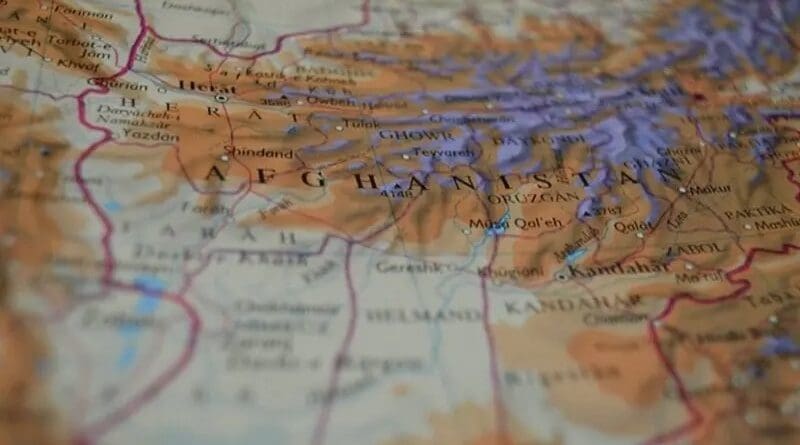Taliban Play The Waiting Game – Analysis
By Ahmad Noor
The proposed withdrawal of U.S. and NATO forces from Afghanistan in 2014 gave the Taliban hope and confidence that they will win in the long run. Earlier in February, U.S. Defense Secretary Leon Panetta declared that his country hopes to end its combat role in Afghanistan in mid 2013, more than a year before the deadline for the withdrawal of NATO forces from Afghanistan. The killing of 16 innocent Afghans in Panjwai, Qandahar by a U.S. soldier, Robert Baleson, on March 11 and the burning of the Quran copies at a U.S. base in Bagram on February, 21 triggered fierce reactions by the Afghans. In demonstrations and agitations all over the country 30 Afghans and six U.S. soldiers were killed. After witnessing the angry reaction of the people, the inner circle of Taliban pressurized the leadership not to negotiate with the U.S. at this juncture of time. The recent developments have changed the scenario to utmost concern about the future of the war-ravaged country. In such a complex situation, the Taliban are holding their nerves and follow a “wait and see” policy.
The Taliban are well aware of the differences and animosities between Afghan security forces and NATO. The recent violent incidents after the burning of Quran and the reaction showed by Afghans through demonstrations and killings of NATO advisors in the Ministry of Interior Affairs are the prime examples of the mistrust amongst them.
On the other hand, the Taliban infiltration into Afghan security forces has exacerbated the situation. More than 80 NATO personals have been killed since 2007 in “green on blue” attacks in which Afghan security forces killed allies from the International Security and Assistance Force (ISAF). The killing of four French soldiers in January by an Afghan security personal and the abatement of combat operations by French forces shows the political implication of the operation for the French government.
As 2012 is the election year in the United States, the Obama administration has to answer the American people about the situation of Afghanistan clarifying whether they are winning or losing the war. If the Americans continue to bleed in Afghanistan, it will have a negative impact on the election campaign. Moreover, the recent poll conducted by New York Times/CBS also suggests that 69% of Americans want U.S. troops pulled out of Afghanistan.
The Taliban have been assessing the situation exceptionally well. They know that if they successfully conduct overt and covert operations against the enemy, it will affect the election campaign of Obama and they will regain lost ground during the time of dialogue and negotiation. In the last few years, Taliban have come to know the weaknesses of the U.S. strategies. They have temporarily stopped negotiations with the U.S. in Qatar and are confident that sooner or later the U.S. will negotiate with them on their terms and conditions.
The Taliban are also aware of the internal situation of Afghanistan. The people of Afghanistan suffer from rising price levels and increasing costs of living. For millions of Afghans poverty, lack of resources and desperate searching for bread and butter are the reality. It is a well known fact that poverty and unemployment lie at the heart of many social problems which Afghans are facing. The unjust distribution of international aid also worsened the situation. The anger and frustration have been building up for too long among the majority of Afghans. The Taliban are also well aware that the present Karzai government is only a silent spectator of the suffering of Afghans and cannot heal their wounds and miseries.
Internally, some of the political groups are not in favor of dialogue with the Taliban, for example some of the members of Northern Alliance. Due to violations of human and particularly women rights by the Taliban, some human right groups have shown serious concern about the issue. Moreover, the Afghan government, opposition forces and civil society are divided about the negotiations with the Taliban.
To be frank, the U.S. led reconciliation and the Afghan government under Karzai are not in a position to deal with the Taliban at present. The NATO forces are already tired and frustrated in long war. The Karzai administration has failed to resolve the internal governance crisis leaving behind deep routed political divisions and a quickly deteriorating security situation. On the other hand, the Taliban are preparing for a summer offense against the U.S. led coalition and Afghan forces. They think that 2014 is not far away and if they increase their target killing and operations against NATO and Afghan security forces, ultimately the international community will come to the negotiation table at their terms. That is the reason they stopped the negotiation process at Qatar for the time being.
General George C Marshall once said “A democracy cannot fight a seven years war”. Obviously, there is no other way to end the Afghan war but through negotiations. Therefore, all sides must cease fighting sooner rather than later to establish the conditions for real peace talks under the umbrella of the United Nations. That is the only way forward for a better and peaceful Afghanistan.
Ahmad Noor ‘Baheige’ holds Ph. D degree in International Relations from the University of Peshawar, Pakistan. His areas of expertise are Afghanistan and Afghan related issues.

